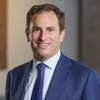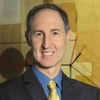- videocam On-Demand Webinar
- signal_cellular_alt Intermediate
- card_travel Personal Injury and Med Mal
- schedule 90 minutes
Bicycle and Pedestrian Accidents Involving Motor Vehicles: Navigating Unique Legal Challenges
Assessing Claims and Coverage, Managing Complex Evidentiary Issues, Overcoming Affirmative Defenses, Negotiating With Insurers
Welcome to BARBRI, the trusted global leader in legal education. Continue to access the same expert-led Strafford CLE and CPE webinars you know and value. Plus, explore professional skills courses and more.
About the Course
Introduction
This CLE course will examine the unique legal and practical challenges personal injury counsel face when representing bicyclists (including ebike riders) and pedestrians injured in accidents involving motor vehicles. The panel will discuss effective strategies for identifying all potential claims and sources of recovery, confronting evidentiary issues such as preserving traditional and social media evidence and using experts, overcoming affirmative defenses such as contributory negligence or safety law violations, and negotiating with insurance companies.
Description
Bike crashes are on the rise. Pedestrian fatalities have been going up for almost a decade. Personal injury attorneys representing victims in these cases face an uphill battle in obtaining recovery for their clients due to the perception held by many, including insurance companies, that bicyclists and pedestrians often ignore safety laws, such as failing to use turn signals or entering intersections before the traffic light turns green.
Personal injury counsel must identify all potential claims and sources of recovery, from the automobile driver who crashed into the bicyclist or pedestrian to the governmental entity responsible for maintaining traffic signals or painting street lines. Counsel in bike crash cases must also become familiar with the dynamics of bicycling, including what is reasonable with regard to speed and hazard perception.
Other unique challenges counsel face include collecting and preserving evidence, including social media evidence, using experts, and overcoming affirmative defenses. Further, because children are frequently victims of bicycle accidents, counsel must ensure the proper ethical treatment of young clients. Practitioners must also understand effective approaches to negotiating with insurance companies in these cases.
Listen as our panel of experienced personal injury attorneys examines the special legal and practical challenges involved with representing bicyclists and pedestrians who suffered injury in an accident involving motor vehicles. While state laws can vary, the panel will identify common strategies for effectively assessing cases, identifying sources of recovery, working with young clients, navigating evidentiary challenges, negotiating with insurance companies, and evaluating settlement offers.
Presented By

Mr. Thomas concentrates his legal practice on advocating for those who have sustained personal injuries during bicycle crashes or motor vehicle crashes. He is an accomplished litigator who also helps with matters involving first-party property claims, business torts, as well as class action and multi-district litigation cases. Mr. Thomas is also the Louisiana, Texas, and Mississippi delegate for Bike Law, which is a national group dedicated to advocating for the rights of cyclists.

Mr. Weiss is licensed to practice law in Georgia and Colorado. He has worked for insurance companies and their interests, at which time he became knowledgeable about various insurance companies’ policies and tricks. Mr. Weiss focuses on all aspects of his client’s situation including whether adequate medical evaluation and care has been provided to his clients, and tried to make sure that occurs.
-
This 90-minute webinar is eligible in most states for 1.5 CLE credits.
-
Live Online
On Demand
Date + Time
- event
Wednesday, July 10, 2024
- schedule
1:00 p.m. ET./10:00 a.m. PT
- Assessing cases
- Interviewing clients
- Identifying potential defendants
- Reviewing insurance coverage
- Proving liability
- Theories of liability
- Establishing causation
- Working with experts
- Evidentiary challenges
- Overcoming affirmative defenses
- Negotiating with insurance companies
The panel will review these and other key issues:
- What factors should personal injury attorneys consider when assessing a claim involving injuries to a pedestrian or bicyclist and potential sources of recovery?
- What evidentiary challenges do attorneys face in proving their case--and how can they best overcome them?
- What experts are needed? Desirable?
- What affirmative defenses do defendants often raise in these cases--and how can personal injury attorneys defeat them?
Unlimited access to premium CLE courses:
- Annual access
- Available live and on-demand
- Best for attorneys and legal professionals
Unlimited access to premium CPE courses.:
- Annual access
- Available live and on-demand
- Best for CPAs and tax professionals
Unlimited access to premium CLE, CPE, Professional Skills and Practice-Ready courses.:
- Annual access
- Available live and on-demand
- Best for legal, accounting, and tax professionals
Unlimited access to Professional Skills and Practice-Ready courses:
- Annual access
- Available on-demand
- Best for new attorneys
Related Courses

Apparent Agency Liability and Gig Economy Defendants: Critical Facts and Themes; Discovery Strategy; Dean v. Uber
Friday, April 10, 2026
1:00 PM ET/10:00 AM PT
Recommended Resources

Making Continuing Education Work for You, Anytime, Anywhere
- Learning & Development
- Career Advancement

Getting the Most Out of BARBRI Resources
- Learning & Development
- Business & Professional Skills
- Talent Development

